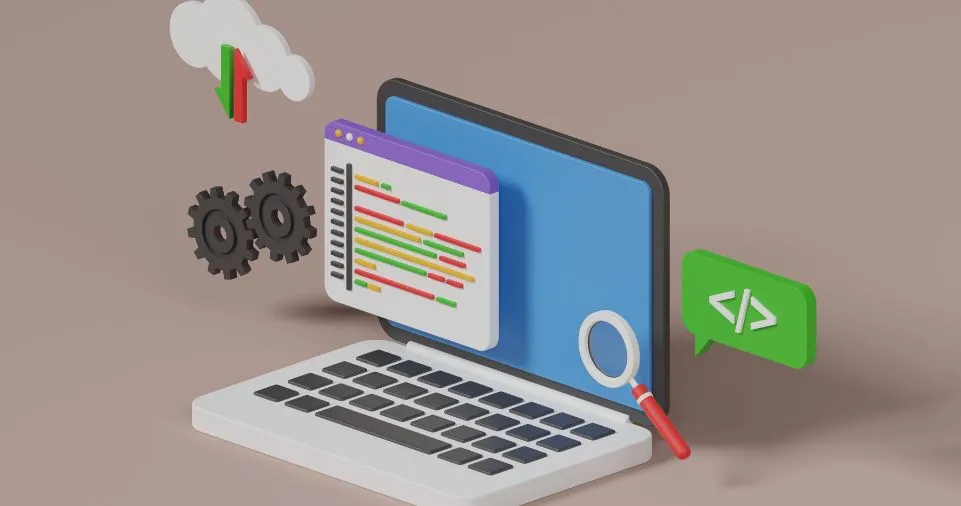IP addresses like 127.0.0.1:62893 and 127.0.0.1:49342 play a crucial role in networking and software development.
These addresses, often referred to as localhost or loopback addresses, are used to establish internal communication on a device, allowing it to test and run services without external network connections.
Understanding the function of 127.0.0.1 and the importance of ports like 62893 is essential for developers and network administrators, as they provide a secure, efficient way to test applications, manage network security, and troubleshoot issues in a controlled environment.
This article will explain these concepts in a clear and detailed way.
We’ll break down what 127.0.0.1 means, how ports such as 62893 and 49342 work, and how developers and network engineers use these tools for testing and debugging software.
By the end of this article, you will have a solid grasp of how these addresses function and why they are crucial for network security, software development, and troubleshooting.
What is 127.0.0.1?
127.0.0.1, commonly known as the loopback address or localhost, is a unique IP address that refers to the computer you are currently using.
It allows the device to communicate with itself, creating an internal feedback loop that doesn’t require an external network.
The term localhost is often used in software development and networking as shorthand for 127.0.0.1.
It’s essential for testing purposes and simulating network services locally without using an actual network connection.
The Significance of 127.0.0.1 in Networking
When you enter 127.0.0.1 into your web browser or connect to it through your command line interface, you are communicating directly with your own device.
This allows for fast and controlled testing environments, especially in software development.
For example, imagine you are developing a web application. Instead of deploying the application to a remote server for testing, you can run it on localhost and simulate how it would perform in a real environment.
This saves time, reduces errors, and helps developers catch bugs before public release.
Also Read: How I Sleep at Night Knowing l’m Failing All My Classes – Tymoff
Ports: What Do Numbers Like 62893 and 49342 Mean?
Ports are like virtual doors on your computer. When you use an IP address like 127.0.0.1, you often see it followed by a colon and a number, such as 127.0.0.1:62893 or 127.0.0.1:49342.
The numbers after the colon are called ports, and they are used to differentiate between different services or applications running on the same machine.
Each port number corresponds to a specific service. For example:
- Port 80 is typically used for HTTP (web traffic).
- Port 443 is used for HTTPS (secure web traffic).
- Ports like 62893 or 49342 may be used for custom applications or testing purposes.
When you connect to 127.0.0.1:62893, you are specifically targeting the service running on port 62893 on your local machine.
This is useful when multiple applications are running simultaneously, as each one can be assigned a different port number.
Common Uses of Ports
| Port Number | Service or Application |
|---|---|
| 80 | HTTP (Web traffic) |
| 443 | HTTPS (Secure web traffic) |
| 3306 | MySQL (Database communication) |
| 22 | SSH (Secure Shell for remote login) |
| 62893 | Custom application or service (testing locally) |
| 49342 | Another custom application or service |
Practical Applications of Localhost and Ports
Testing and Debugging Software Locally
Using 127.0.0.1 and specific ports like 62893 allows developers to test applications on their own machine without needing an external server.
This is essential for debugging and verifying that the application functions as expected.
For example, a developer creating a new feature for a website can run the site on localhost (using 127.0.0.1) and test different interactions with the site, such as logging in or submitting forms, all while ensuring that any issues are caught early.
Practical Tip: Always use localhost for testing sensitive applications to avoid exposing them to potential external threats while still under development.
Enhanced Security with Localhost
One of the most important benefits of using 127.0.0.1 is the security it provides.
Since communication with localhost does not leave the local machine, there is no risk of external attacks or data breaches.
For instance, if you are running a web server on 127.0.0.1:62893, no one outside your machine can access it.
This allows you to safely test sensitive applications without the risk of outside interference.
Faster Development Cycles
Localhost testing allows for quicker turnaround times in software development.
Since you’re running everything on your local machine, you don’t need to wait for external servers to process your requests.
Pinging 127.0.0.1 is much faster than sending requests to a remote server, and the reduced latency can give you accurate readings of application response times. This is especially helpful for performance testing.
How to Retrieve Your Computer’s IP Address and Port Information

Retrieving your machine’s IP address and identifying open ports is straightforward. Here’s how you can do it:
For Windows Users
- Click on the Start Menu.
- Type CMD to open the command prompt.
- Type
ipconfigand press Enter. Your machine’s IP address will be displayed. - To check open ports, use the command
netstat -an.
For Linux Users
- Open the terminal by pressing Ctrl + Alt + T.
- Type
ip aorifconfigto retrieve your IP address. - Use
netstat -tulnto view open ports and active services.
By using these commands, you can easily find out what services are running on your machine and which ports they are using.
Real-Life Example: Developing a Web Application
Let’s say you are developing a web application that includes a database and a server.
You might use 127.0.0.1:49342 to run your web server locally and 127.0.0.1:3306 to connect to your local database.
In this setup:
- 127.0.0.1:49342 represents the web server where users will interact with your application.
- 127.0.0.1:3306 connects your application to a MySQL database running locally.
This configuration allows you to test how the application interacts with its database without ever needing to connect to the internet or expose your project to external networks.
Common Issues and Troubleshooting
Apache or Local Server Not Running
If you enter 127.0.0.1:62893 in your browser and nothing loads, this could indicate that your local server is not running.
To fix this, restart the Apache server or the local service you are testing, and try again.
Port Conflicts
Sometimes, two applications may try to use the same port (e.g., 62893). This will cause a conflict, and one or both applications will fail to run.
To resolve this, change the port number for one of the applications to avoid overlap.
Also Read: Rena Monrovia When you Transport Something By Car
Conclusion
Understanding how 127.0.0.1 and ports like 62893 or 49342 work is crucial for anyone involved in software development or networking.
These addresses provide a way to test and develop applications in a secure, isolated environment while ensuring that your machine can communicate with itself efficiently.
By leveraging localhost and ports, you can enhance your development workflow, improve network security, and troubleshoot applications more effectively.
Whether you’re a seasoned developer or just starting out, mastering these tools will make you more proficient and efficient in your work.
Frequently Asked Questions (FAQs)
Q: What is 127.0.0.1?
A: 127.0.0.1 is a loopback IP address that points to the local machine, allowing it to communicate with itself for testing and troubleshooting purposes.
Q: What do port numbers like 62893 or 49342 represent?
A: Port numbers represent specific services or applications running on the same machine. For example, 127.0.0.1:62893 refers to a service on port 62893 of the local machine.
Q: Can I use 127.0.0.1 without an internet connection?
A: Yes, 127.0.0.1 operates locally and does not require an external network connection.
Q: How do I find my computer’s IP address?
A: For Windows, use ipconfig in the command prompt. For Linux, use ifconfig or ip a in the terminal.
Q: Why is 127.0.0.1 useful for developers?
A: It allows developers to test applications in a local environment without exposing them to external threats or needing an internet connection.
Q: Can 127.0.0.1 improve security?
A: Yes, since communication remains internal, it prevents data from being exposed to external networks, enhancing security during testing.
Q: How do I resolve port conflicts?
A: Change the port number in the configuration of one of the conflicting services to avoid overlap.
Q: Can I block websites using 127.0.0.1?
A: Yes, by adding the website’s domain name to the hosts file and mapping it to 127.0.0.1, you can block access to that site on your machine.
Q: What’s the difference between IPv4 and IPv6 localhost?
A: IPv4 uses 127.0.0.1 as the loopback address, while IPv6 uses ::1. Both serve the same function of local communication.
Q: What should I do if localhost isn’t working?
A: Restart your local server (e.g., Apache) or check if the correct services are running on the designated port.


